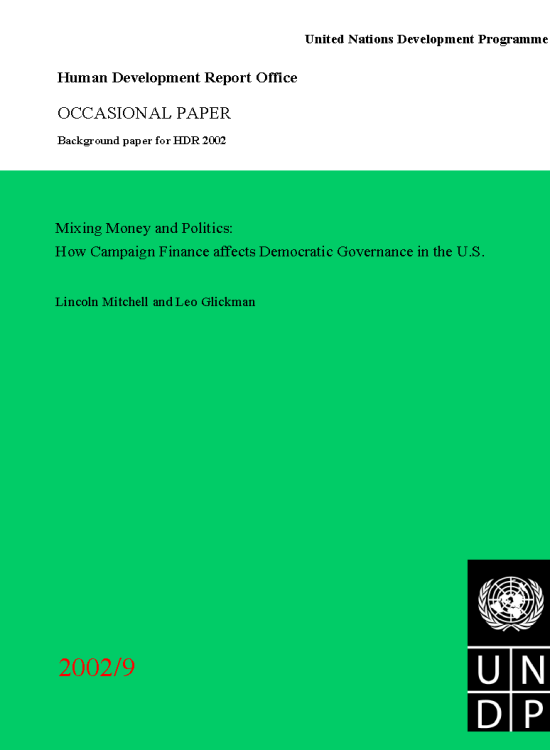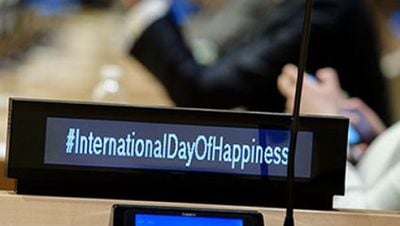Mixing Money and Politics
How Campaign Finance affects Democratic Governance in the U.S.

Download Report by Language
Document
mitchell-glickman2002.pdf
(261.37 KB)
Citation
Mitchell, Lincoln, Glickman, Leo. 2002. Mixing Money and Politics: How Campaign Finance affects Democratic Governance in the U.S.. New York.
Mixing Money and Politics
How Campaign Finance affects Democratic Governance in the U.S.
Posted on: January 01, 2002
No full study of democracy in the United States is complete without an examination of the role of money in politics. The debate over campaign finance, and the failure to enact meaningful reform has been at center of domestic political debate for years. However, to a casual observer of American democracy campaign finance reform might seem like the weather: everybody seems to talk about it, but nobody does anything about it. Thus, the problems created by the influence of money in campaigns and legislation remains a major problem in America’s democracy. Money influences the political process in numerous ways: people and groups who contribute and raise money for candidates have more access to and influence over politicians than those who do not; politicians spend substantial amounts of their time raising money rather than legislating or serving constituents; people and organizations without money have less influence over politics; and political parties seek wealthy candidates to run for office whose sole qualification is their ability to fund their own campaign. Birnbaum (2000), Donnelly et. al. (2001), West (2000) and Stern (1988 and 1992) offer strong descriptions and analysis of these problems.

